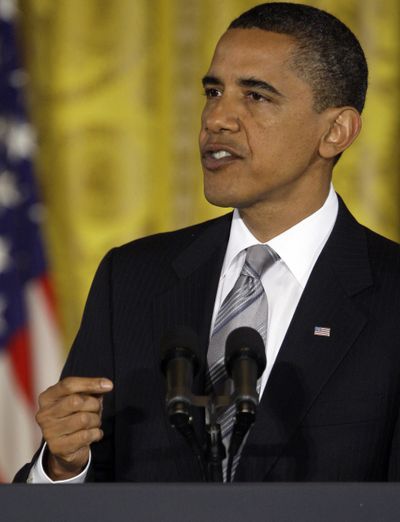President rolls out financial regulation proposal
Changes veer from free-market course

WASHINGTON – President Barack Obama proposed sweeping new government regulation of the nation’s financial system Wednesday, turning sharply away from the pro-free-market passion that’s dominated American politics for three decades.
Obama’s proposal to overhaul the nation’s financial regulatory structure would reverse the prevailing anti-regulation sentiment in Washington and the country that started with Jimmy Carter in the late 1970s, accelerated with Ronald Reagan in the 1980s and continued into this decade.
In so doing, Obama seeks to build a new regulatory structure to meet the demands – and the schemes – of a new age, much as Theodore Roosevelt did at the dawn of the 20th century and Franklin Roosevelt did in response to the Great Depression of the 1930s.
Obama would, for example, apply federal regulation for the first time to complex financial innovations such as hedge funds and derivatives, and demand tough new standards for financial institutions that have grown so big that taxpayers have had to bail them out lest they drag down the world economy.
The president’s plan also calls for giving the Federal Reserve greater power over big financial institutions and creating a Consumer Financial Protection Agency to guard against abuses in mortgages and credit cards.
Obama said dramatic measures were necessary after the economic crisis that’s rocked the country and the world, a crisis that he said revealed the government as woefully unprepared for a fast-changing financial system.
“A culture of irresponsibility took root from Wall Street to Washington to Main Street. And a regulatory regime basically crafted in the wake of a 20th century economic crisis, the Great Depression, was overwhelmed by the speed, scope and sophistication of a 21st century global economy,” he told members of Congress, financial regulators and interest groups in the East Room of the White House.
“My administration is proposing a sweeping overhaul of the financial regulatory system, a transformation on a scale not seen since the reforms that followed the Great Depression.”
He acknowledged the shift back toward government: “There’s always been a tension between those who place their faith in the invisible hand of the marketplace and those who place more trust in the guiding hand of the government.”
Republicans came out swinging against new government regulation as a job-killing burden on business.
“The American people don’t want Washington to get more involved in the private sector,” said Rep. John Boehner, R-Ohio, his party’s leader in the House of Representatives. “This plan may slow down job growth at the time that families and small businesses across America need it most.”
The reaction from business groups and others was more mixed. The U.S. Chamber of Commerce was particularly displeased with Obama’s proposal to create a Consumer Financial Protection Agency, which it said “cannibalizes regulatory expertise and adds yet another regulatory layer.”
The Securities Industry and Financial Markets Association called the proposal an important first step. “We have a once-in-a-generation opportunity to rebuild our regulatory structure so that our financial system is more stable, more resilient and better underpins a dynamic U.S. economy,” said Tim Ryan, the group’s president.
Democrats said they would start writing legislation next month, and they predicted approval by the end of the year.